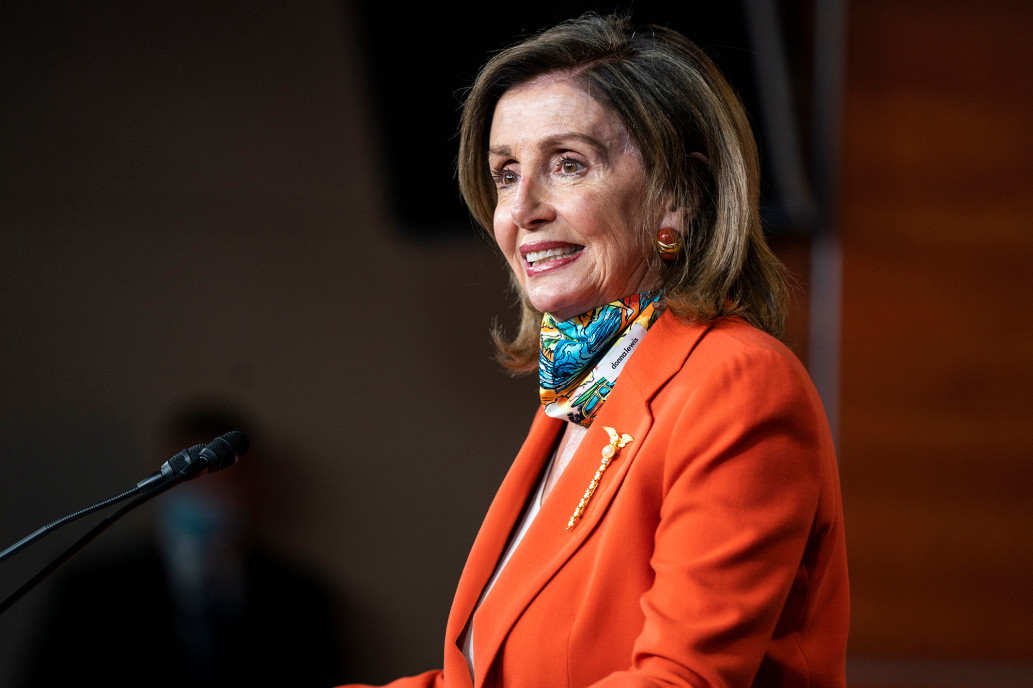House Democrats riled by President Trump’s handling of anti-police brutality protests voted Friday to make Washington, DC, the 51st state.
The bill passed 232-180 along party lines. One Democrat and the only Libertarian joined all Republicans in opposition. It’s the first time either chamber of Congress has approved DC statehood.
Senate Majority Leader Mitch McConnell (R-Ky.) recently said he won’t hold a vote, effectively killing the bill. Trump told The Post last month that DC will “never” be a state because Republicans aren’t “stupid” enough to add guaranteed Democratic seats.
The capital city is home to roughly 700,000 people, which is significantly less than the population of the 10 largest cities in the United States. Although, the population is more than Vermont and Wyoming, and nearly as many as Alaska. Though geographically it’s more comparable to a city, which in fact it is, with a functional mayor and council. The lands that make up the City of Washington D.C. was land that was taken from parts of the states of Maryland and Virginia back in 1790 with the signing of the Residence Act. If it were a state, DC would have one House member and two senators.
In contrast to Washington DC’s population, the US territory of Puerto Rico has an estimated population of 3.5 million of US citizens, and unlike the City of Washington, Puerto Ricans in the territory don’t have the privileges to vote for the President. While Puerto Rico doesn’t get tax similarly to incorporated states, they do pay for certain federal taxes and are restricted by Congressional laws that essentially act like levies.
Ahead of the vote, Democrats said Trump’s handling of protests over the killing of George Floyd by Minnesota police shows why local officials need more say in decisions such as deploying the National Guard.
Rep. Carolyn Maloney (D-NY) said, “Trump’s recent decision to deploy thousands of federal law enforcement officers in DC against residents peacefully exercising their constitutionally protected right to protest, and without the consent of the district’s elected officials, demonstrated the urgent need for full local government and congressional representation.”
During committee debate this week, Republicans said recent scenes of mayhem on DC streets actually bolstered their case against statehood because DC Mayor Muriel Bowser failed to quell looting and property damage.

“They could not quell the violence taking place in the District, proving once again how fundamental the federal government is in Washington, DC, in maintaining order and civility,” said Rep. Jody Hice (R-Ga.).
Much of the debate focused on older arguments. Non-voting DC Delegate Eleanor Holmes Norton said city residents are victims of “taxation without representation” and pay more federal taxes than 22 states.
The bill would create the new state of Washington, Douglass Commonwealth, in honor of former resident and abolitionist Frederick Douglass, by shrinking the federal district to include the White House, the Capitol and other federal buildings, while making most of the city a state. Since ratification of the 23rd Amendment in 1961, DC has had a say in presidential elections, with three electoral votes, but no votes in Congress.
Republicans offered an array of arguments against DC statehood.
Rep. Fred Keller (R-Pa.) sought unsuccessfully to condition statehood on policies including a guarantee on gun rights and a ban on protester “autonomous zones” as attempted this week by anti-racism activists outside the White House.
Many opponents said a constitutional amendment is required. Other Republicans said residential neighborhoods can be returned to Maryland — as was done in 1847 with the part of northern Virginia that formerly was part of DC.
“This is not Congress’ land, this is Maryland’s land,” said Rep. Andy Harris (R-Md.). “Don’t steal this land from Maryland.”
Rep. Louie Gohmert (R-Texas), meanwhile, said he agreed that it’s wrong to tax residents without giving them votes in Congress. Gohmert urged passage of legislation to exempt DC residents from federal income tax — a perk enjoyed by US territories.
“We are pleased to continue to pay federal income taxes,” Norton retorted. Virgin Islands Delegate Stacey Plaskett, a Democrat, agreed, “I would rather pay taxes than have the treatment that this body gives to those that live in the territories.”
Rep. Maxine Waters (D-Calif.) said more than 40 percent of DC is black and “race underlies every argument against DC statehood.”
Rep. Glenn Grothman (R-Wis.), however, likened making DC a state to giving Milwaukee two senators.
“I will never vote to give a single middling-size city the same political power as one of America’s great 50 states,” added Rep. Mo Brooks (R-Ala.). “Their goal is two more guaranteed left-wing senators.”
Hice gave a brush-off common among conservatives, pointing to local financial woes and corruption in recent decades.
“DC is simply not equipped to shoulder the burden of statehood,” Hice said.
The last time DC statehood received a House vote, in 1993, it failed, with just one Republican supporter and almost half of Democrats opposed.
City residents are overwhelmingly Democratic. In 2016, Trump took just 4.09 percent of the vote against Democrat Hillary Clinton. The same year, 86 percent of city voters endorsed statehood.




